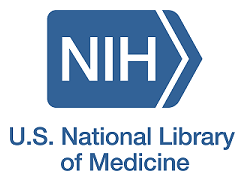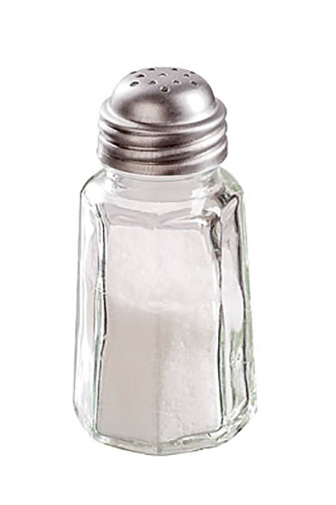

To Your Health: NLM update Transcript
Salt linked to heart disease among CKD patients: 07/25/2016

Greetings from the National Library of Medicine and MedlinePlus.gov
Regards to all our listeners!
I'm Rob Logan, Ph.D., senior staff, U.S. National Library of Medicine (NLM).
Here is what's new this week in To Your Health - a consumer health oriented podcast from NLM - that helps you use MedlinePlus to follow up on weekly topics.
Adults who have chronic kidney disease - and eat a diet high in salt - comparatively increase their odds of a heart attack or stroke, finds a pioneering study recently published in the Journal of the American Medical Association.
Specifically, the study suggests 23 percent of adults with chronic kidney disease (CKD) and a diet high in salt experienced heart failure compared to about 13 percent of CKD patients with a diet low in salt. The study suggests 11 percent of adults with CKD and a diet high in salt had a heart attack compared to about 8 percent of CKD patients who ate a diet low in salt.
Similarly, about six percent of adults with CKD and a diet high in salt had a stroke compared to about three percent of CKD patients who ate a diet low in salt.
The study's 16 authors note the research is pioneering since it is the first to assess the association between salt intake and heart disease in adults with CKD. The findings are derived from an assessment of about 3,900 CKD patients from seven locations across the U.S. All participants provided medical histories and urine samples (as a surrogate measure to track salt intake) for several years, starting in 2003 (for some) and ending in 2013.
In an editorial that accompanied the study, its two authors write: (and we quote): 'Even though the (study's) associations are modest, barring these inconsistencies, they are exceedingly important when considering these results may apply to more than 20 million patients with CKD in the United States' (end of quote).
The editorial's authors add: (and we quote): 'If the findings of the study are true…. and the observed associations are casual, they suggest that modest reductions in sodium intake would have considerable benefit in preventing heart failure, myocardial infarction, and stroke (and hospitalizations associated with these conditions)' (end of quote).
The editorial's authors note the findings strongly suggest a pressing need for large-scale clinical trials of dietary interventions for adults with CKD. The editorial's authors conclude: (and we quote): 'If the results … are validated in experimental studies, efforts to influence sodium intake in persons with CKD could save many lives and medical costs' (end of quote).
Incidentally, the U.S. Food and Drug Administration recently announced an effort to work with the food industry to reduce the salt in processed foods sold throughout the United States. The FDA notes sodium within processed foods is a major source of salt and health risks for many Americans. The FDA has a guide to lowering salt in your diet (from both processed and prepared foods) that is available within the 'start here' section of MedlinePlus.gov's sodium health topic page.
The FDA explains how to reduce salt by understanding the nutrition labels on food and drink bottles, cans and packages also within the 'start here' section of MedlinePlus.gov's sodium health topic page.
Similarly, the Mayo Foundation for Medical Education and Research provides information about how to tame a high salt diet habit within the 'start here' section of MedlinePlus.gov's sodium health topic page.
MedlinePlus.gov's sodium health topic page additionally provides links to the latest pertinent journal research articles, which are available in the 'journal articles' section. Links to relevant clinical trials that may be occurring in your area are available within the 'clinical trials' section. You can sign up to receive updates about sodium as they become available on MedlinePlus.gov.
To find MedlinePlus.gov's sodium health topic page, please type 'salt' in the search box on MedlinePlus.gov's home page, then, click on 'sodium (National Library of Medicine).'
Before I go, this reminder... MedlinePlus.gov is authoritative. It's free. We do not accept advertising .... and it is written to help you.
To find MedlinePlus.gov, just type 'MedlinePlus.gov' in any web browser, such as Firefox, Safari, Chrome, or Explorer, on any platform.
We encourage you to use MedlinePlus and please recommend it to your friends. MedlinePlus is available in English and Spanish. Some medical information is available in 48 other languages.
Your comments about this or any of our podcasts are always welcome.
Please email the podcast staff anytime at: NLMDirector@nlm.nih.gov
A written transcript of recent podcasts is available by typing 'To your health' in the search box on MedlinePlus.gov's home page.
The National Library of Medicine is one of 27 institutes and centers within the National Institutes of Health. The National Institutes of Health is part of the U.S. Department of Health and Human Services.
A disclaimer — the information presented in this program should not replace the medical advice of your physician. You should not use this information to diagnose or treat any disease without first consulting with your physician or other health care provider.
It was nice to be with you. Please join us here next week and here's to your health!






















.png)











No hay comentarios:
Publicar un comentario